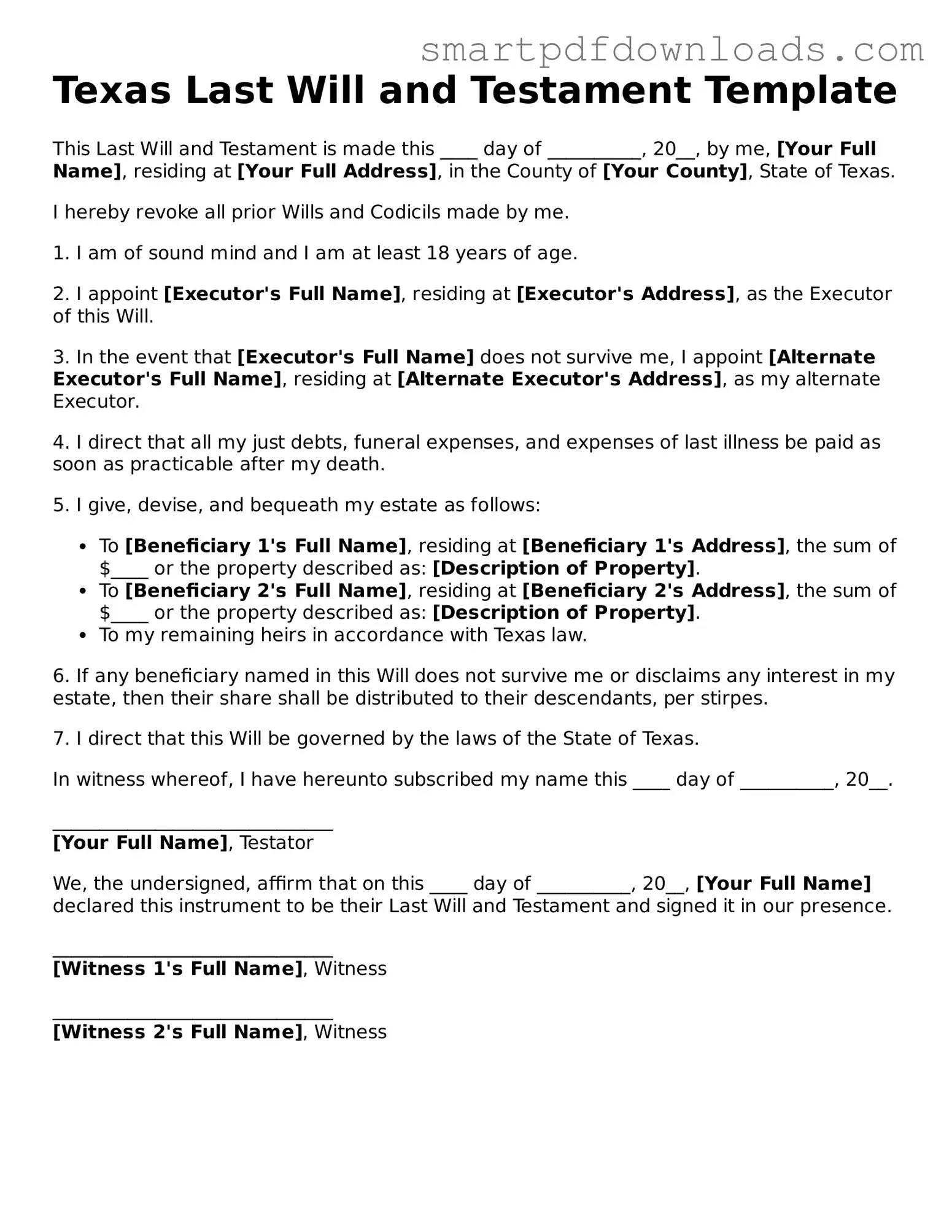Legal Last Will and Testament Form for the State of Texas
The Texas Last Will and Testament form is a legal document that allows individuals to outline their wishes regarding the distribution of their assets after they pass away. This essential tool ensures that one's intentions are honored and provides clarity for loved ones during a difficult time. Understanding how to properly create and execute this form can help avoid potential disputes and ensure peace of mind.
Edit Last Will and Testament Online

Legal Last Will and Testament Form for the State of Texas
Edit Last Will and Testament Online

Edit Last Will and Testament Online
or
⇓ PDF File
Finish the form and move on
Edit Last Will and Testament online fast, without printing.